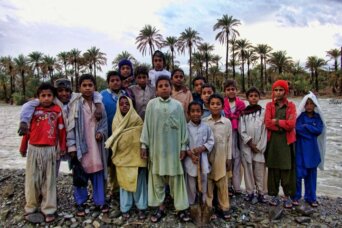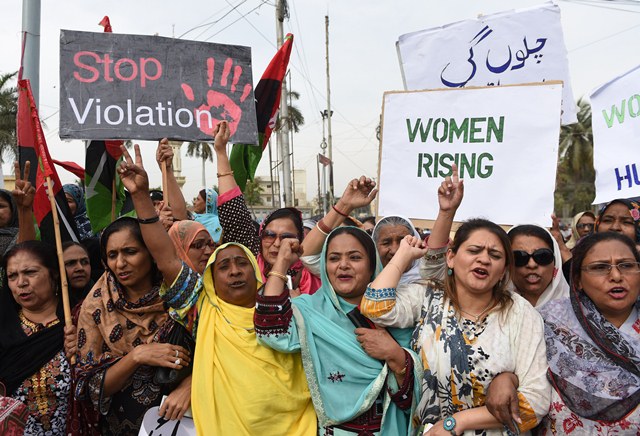- About
- Topics
- Story
- In-Depth
- Picks
- Opinion
- News
- Donate
- Signup for our newsletterOur Editors' Best Picks.Send
Read, Debate: Engage.
| topic: | Political violence |
|---|---|
| located: | Pakistan |
| editor: | Shadi Khan Saif |
For decades, scores of traumatised young girls and elderly women of the Baluch ethnic minority in Pakistan have been desperately seeking justice for their missing male family members.
Heartbreaking scenes were yet again on display this week in the country’s capital, Islamabad, when these poor and marginalised women and girls spent chilling days and nights on the streets, hopelessly demanding the appearance of their loved ones in courts.
With no clear response to such demands from relevant official quarters, it is assumed most of the missing Baluch men are either killed or in custody of the secret agencies on alleged charges of rebellion.
This curious case of missing Baluch persons has gone so secretive and even dangerous that the local mainstream media representatives fear for their lives while covering it.
Karima Baloch, a female ethnic Baluch human rights activist and dissident - also listed as BBC’s 100 inspirational and influential women in 2016 - was found dead on the outskirts of Toronto last year under suspicious circumstances.
The native areas of the Baluch, the southwestern Baluchistan province, remain one of the most naturally rich in terms of resources, particularly gas and other minerals. However, it also remains one of the most deprived corners of the country of over 200 million in terms of socio-economic barometers.
In a bizarre response to the Baluch women’s call for justice, one of the country’s governing ministers, Chaudry Fawad Hussain, brazenly portrayed the disappearance of Baluch men over decades as a reaction to the law and order issues in the province.
“These mothers can protest in Punjab and yet no one will shoot them after looking at their ID cards,” he tweeted on February 17. “But what can we do about the sorrow of those mothers whose sons are shot in Balochistan just because they are Punjabi?” he added in reference to the hundreds of Punjabi laborers and professionals whose murders have been claimed by Baluch separatists since the Pakistani government launched a military operation there in early 2000.
In a civilised democratic society, it is the government’s responsibility to provide security to its citizens without discriminating on the basis of ethnicity or kidnapping alleged law-offenders without presenting them in courts for justice.
Officials in the power quarters in Pakistan, such as Chaudry Fawad, should stop criminalising every protest drive and dissent at home while praising it in other countries in order to satisfy their temptation of regional strategic maneuvering while their own agonising countrymen and women desperately long for justice.
Image by Beluchistan.

